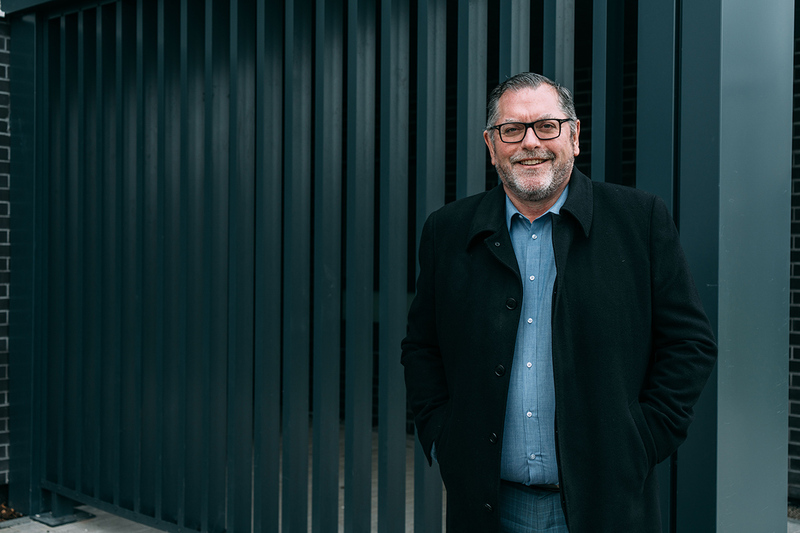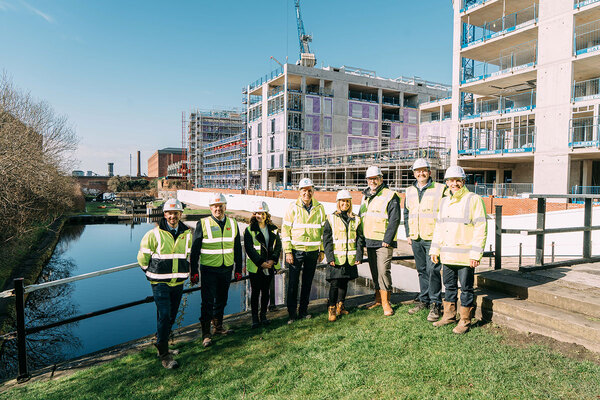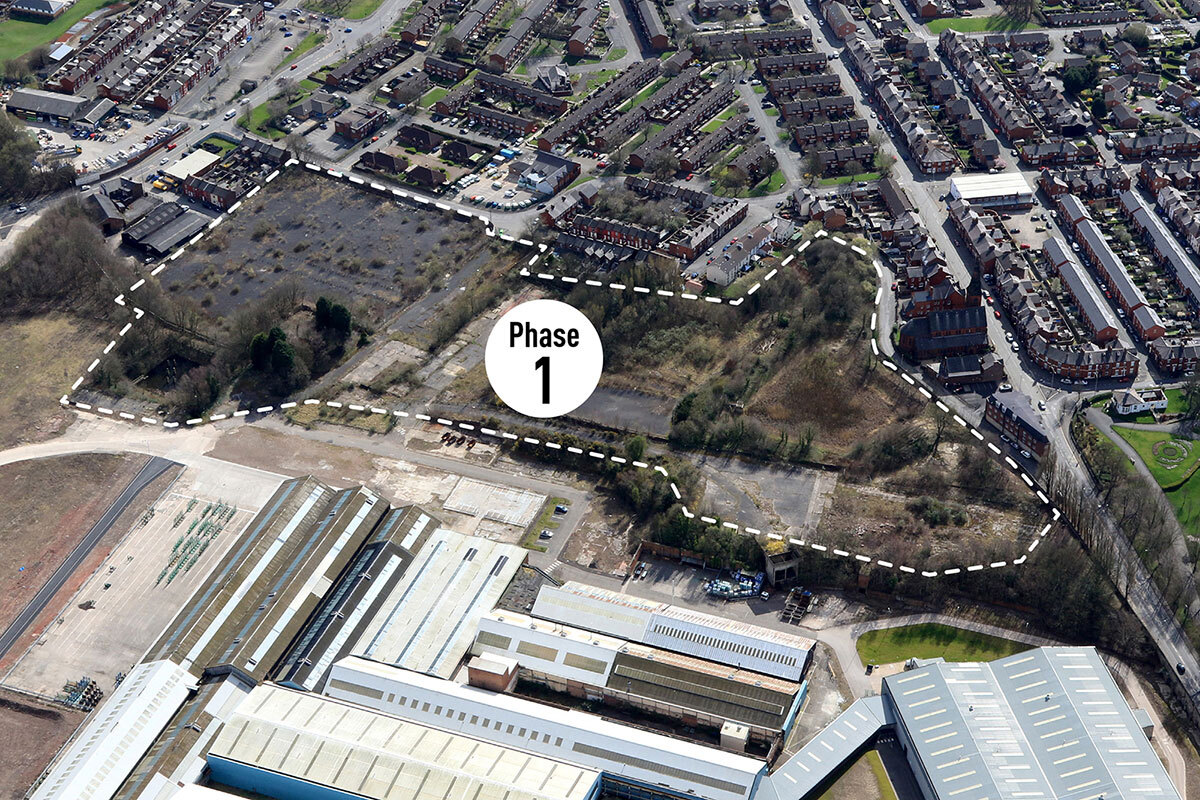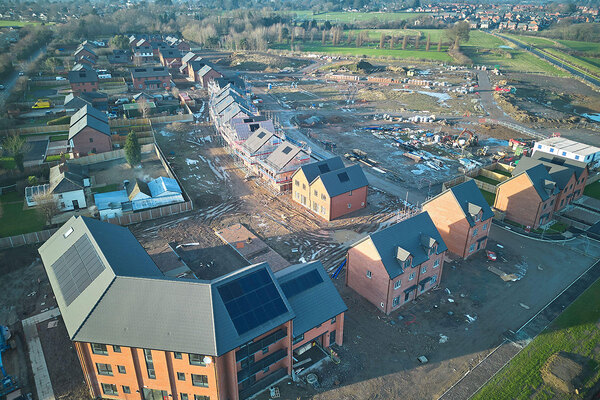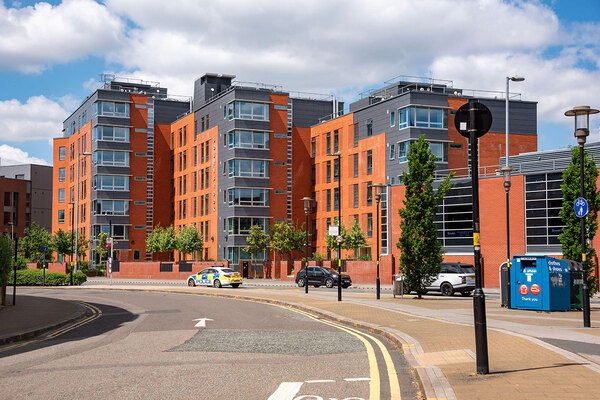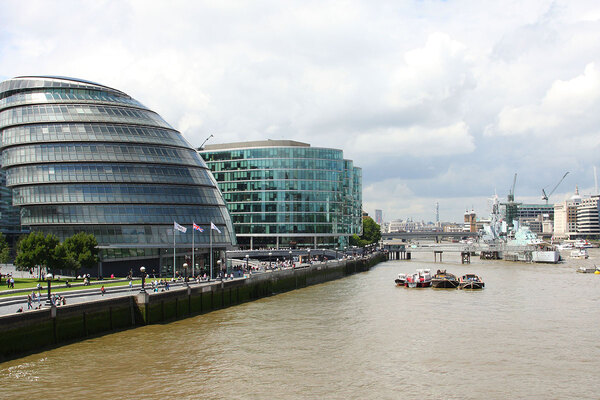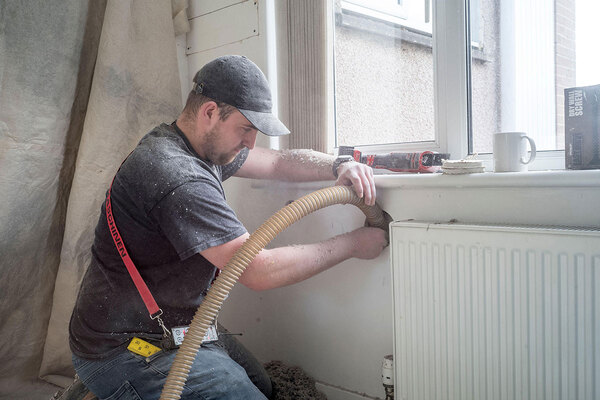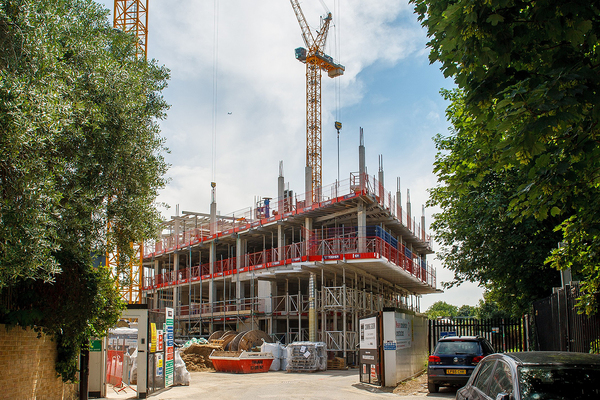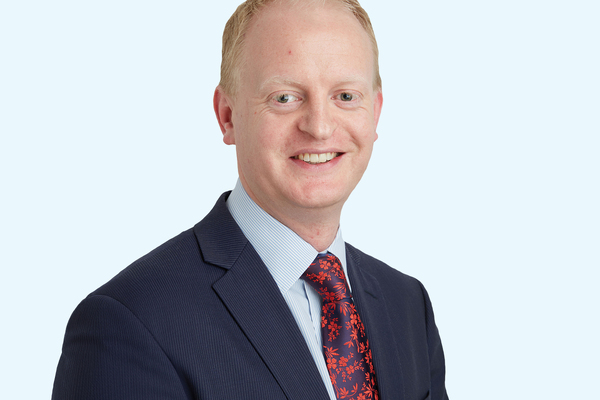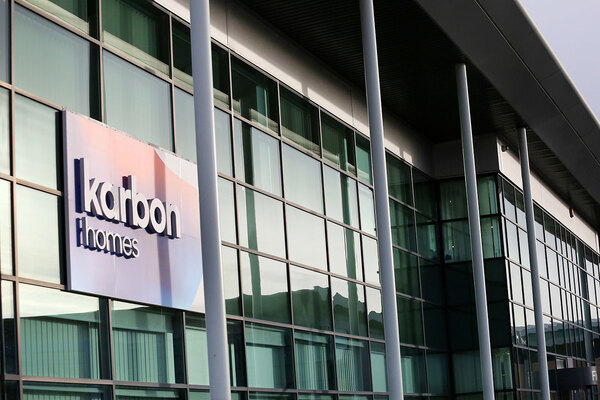Former Homes for the North chair Steve Coffey: ‘I wanted to leave a legacy of development and prosperity across the region’
Steve Coffey, chief executive of Torus, sits down with Stephen Delahunty to reflect on his time as chair of Homes for the North
Mr Coffey took on the role at H4N, an alliance of 17 developing housing associations in the North of England, in April 2022.
The body was formed in 2016, with the aim of influencing national policy to deliver more and better homes in the North.
Mr Coffey, who has more than 20 years’ experience as a senior housing executive, speaks to Inside Housing from his corner office on St John’s Lane in Liverpool, which offers views of the city’s famous St George’s Hall and St John’s Gardens, which both sit just across from the World Museum and the National Gallery.
Both of these institutions make up a huge part of the city’s cultural legacy. In a similar vein, Mr Coffey talks of a desire to leave a similar legacy in development and prosperity across Liverpool and the region.
On his time as chair of H4N, which came to an end after two years in April, he says: “It was about regeneration and making places fit for purpose. Plus, making sure that the workers in the economy have somewhere nice to live and generate wealth in a much more rounded social economic sense.
“We wanted to bring the big developing associations together to try and look at housing supply and regeneration as a subset of the wider economic proposition in the North. Not just about building homes for the sake of it, but where the growth area is going to be.”
Mr Coffey explains why it was difficult to continue developing, coming out of the other side of the pandemic, especially with rising build costs and inflation. At the same time, the need to refocus on existing stock, particularly on damp and mould, meant H4N’s plan had to look at both new supply and better existing stock.
He says that H4N’s member organisations have “been through periods of very, very significant cost growth, and developing through that, at a time when business plans are challenging, has been difficult for everyone”.
He continues: “But we’re big developers, and we’ve taken a long-term strategy. Most [of H4N’s members] are strategic partners of Homes England, and we’ve been able to plough on with the More and Better Homes plan, which was about addressing the additionality question through new homes, alongside regeneration and making places fit for purpose.”
We asked the Torus boss how he feels H4N differs from other sector bodies such as the Northern Housing Consortium and the G15 in London.
“We wanted to look across the North economically and not replicate what others are doing, and keep our mission very clear. Whether that’s the Northern Powerhouse agenda, we wanted to make sure there is definitely a pan-Northern ask of how do we get back to the great cities in the North, and economic drivers we can use to rebalance the national economy.
“And how does housing contribute, and how does transport and other key infrastructure feed into that? We’ve also been focused on the devolution agenda.”
The last time Inside Housing caught up with Mr Coffey, we were joined by the metro mayor of Liverpool City Region as part of a development site visit at a multimillion-pound scheme being built by Torus, which is the North West’s largest social landlord.
The £51m site at Hartley Locks in Lightbody Street is a stone’s throw away from Everton Football Club’s new £500m stadium being built at Bramley-Moore Dock.
Steve Rotheram, mayor of Liverpool City Region, has said he would like to see a “big chunk” of the Labour Party’s 1.5 million-home pipeline to be delivered in the area.
As the mayor and I are both Liverpool fans, Mr Coffey was the butt of a number of football-related jokes.
Sitting in his office, the Torus boss is drinking from an Everton FC mug, and on the wall is a signed and framed Everton FC shirt.
Mr Coffey agrees with Mr Rotheram on delivering in the area, but he believes there needs to be longer-term certainty and continuity of funding, particularly with the Affordable Homes Programme.
“If Labour really wants to achieve its aspirations and economic growth, you can’t get growth unless people have somewhere to live.”
Mr Coffey started life as a trainee civil engineer in the 1980s and was working on Liverpool’s urban regeneration strategy at the time. He admits that part of the city was pretty depressing at that time, but has personally overseen lots of transformation since then.
“If Labour really wants to achieve its aspirations and economic growth, you can’t get growth unless people have somewhere to live”
When Liverpool Mutual Homes (LMH) transferred from the council in 2008, Mr Coffey says he was tracking the chief executive job at the time and described it as a “dream”.
“I grew up in the city and so I wanted to have a stab at it. And there are lots of similarities to today in terms of build cost inflation, huge investment programmes to meet the Decent Homes Standard. And then we got the funding in place and the credit crunch hit.”
Mr Coffey, who became the boss of Torus when it merged with LMH, believes providing people with a home is as much about aspiration as anything else, because people are more likely to sustain a job when they have somewhere secure to live.
“Their kids will do better at school. They will be healthier and live longer and are less likely to be victims of violent crime,” he adds.
“So we need to do more to create hope across society. I go back to what we were saying about the 1980s and it being depressing. It was, and the city continued to have good and bad spells right up until the Capital of Culture in 2008, which saw a huge injection of cash and regeneration.
“But then after that we’ve had years of austerity. Now, I think the city is having a renaissance and through all those tough periods it’s kept a unique culture, humour and generosity of spirit.
“We have that in spades and economically more people are doing well, there’s more opportunities and a life about the city again. However, people at the very bottom are struggling even more so we need to support them and bring them up, and that’s what this city has always been about.”
Sign up for our daily newsletter
Already have an account? Click here to manage your newsletters
